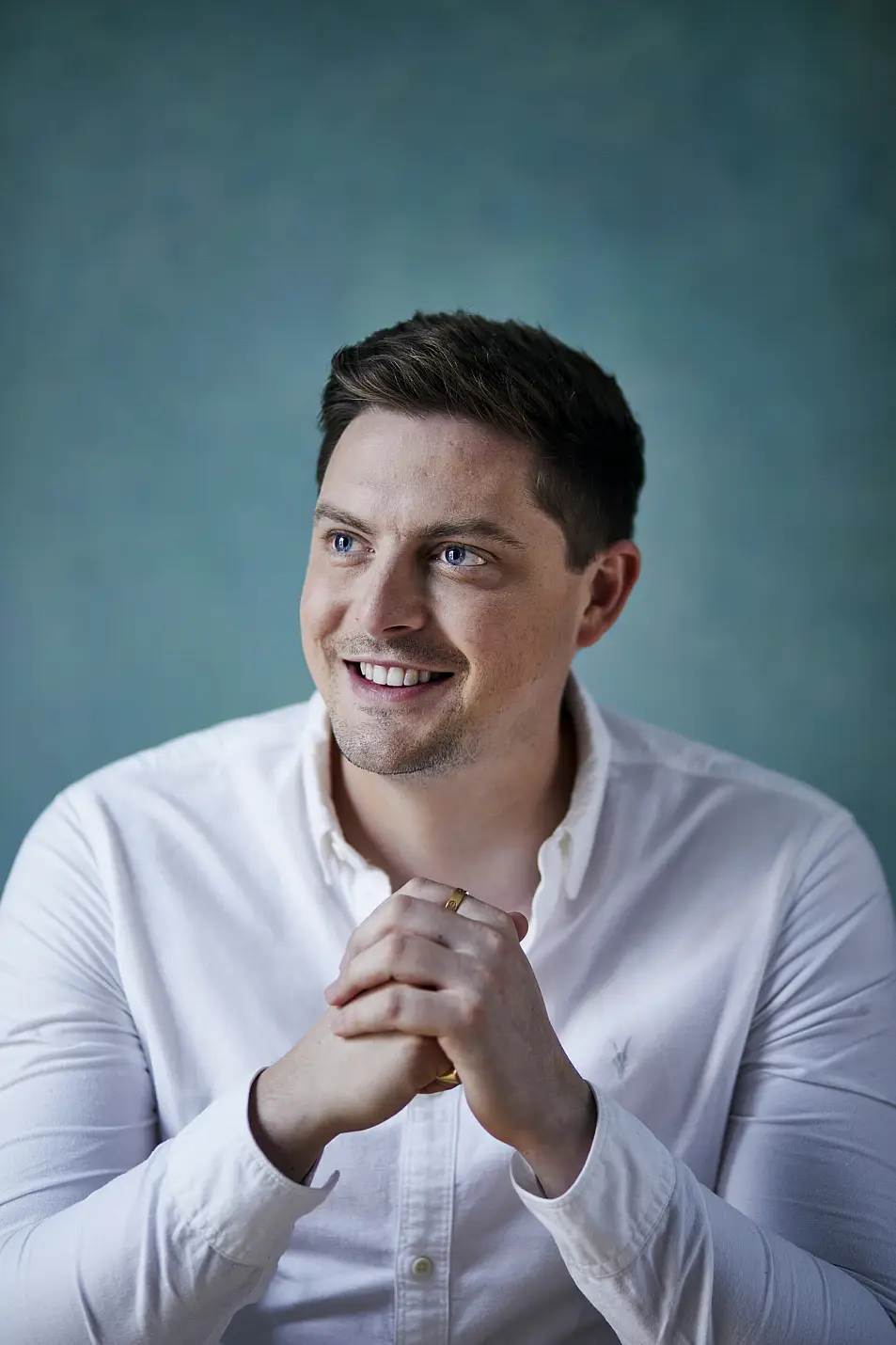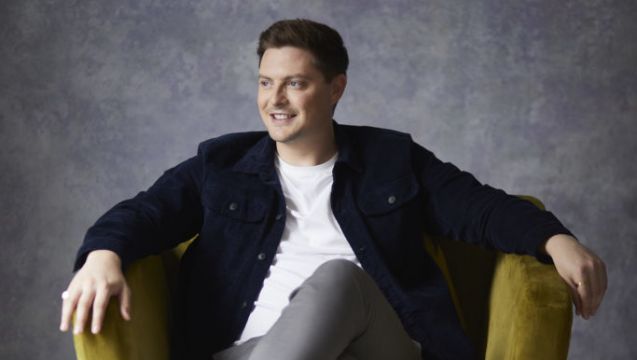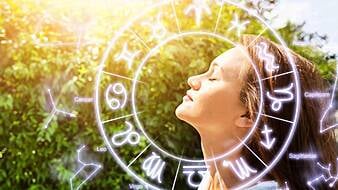Dr Alex George has revealed that more than 150 days without alcohol has been “a challenge” but has made a “huge difference” to his life.
The former Love Island star, TV doctor and now the UK government’s youth mental health ambassador shared that drinking at weekends would sometimes affect him for up to four days afterwards.
The 32-year-old quit his A&E doctor job 18 months ago to focus on bringing the public accessible health advice, often on TV – including Channel 4’s Naked Education – and five months ago, he cut out booze too.
“It’s made a really huge difference,” George says. “I get to bed at 9pm every night, I wake up at 6am, I listen to music, I play music, I go to the gym, I spend quality time with a small number of people – I’ve developed really, really strong boundaries about how I spend my time and who I spend it with.”
It’s an “investment” in himself, he says, but it isn’t always easy.
“When you’ve got a bank holiday weekend and a lot people are sat in a beer garden – that is a challenge. Because even if you’re not addicted to alcohol, and you’re just a part of the British culture, you’ll feel challenges of not drinking in those times.

“But it’s looking at what will future Alex be grateful for – you know, that delayed gratification.”
It’s a topic he explores in his latest book, The Mind Manual, on the mental fitness foundations to give us all a boost, including how to hold better boundaries and why mistakes are part of life.
“I didn’t like how alcohol made me feel,” George, who also hosts the walking and wellness podcast Stompcast, says. “I was drinking pretty standard-ish for a young person in their 30s, but after four, five or six beers on a Saturday night, I’d feel bad – that would affect me a small percentage [of the time] all the way up to Tuesday or Wednesday.”
“It affected my desire for the gym, it affected the way I ate, it affected the relationship I had with myself – so I had a really honest conversation with myself.”
His book is about asking people to challenge things: “Question why are you doing this behaviour?”
During some self-reflection when he was still working in A&E, George says he realised he wasn’t practising what he preached. “I thought, ‘I’m here talking about finding balance and looking after your own mental health, and I’m actually damaging my own mental health by doing too much.”
Self-worth is often so tied up with the roles we have in our careers, so it was a difficult decision to leave, he says. “Since the age of 12 or 13, I’d wanted to be a doctor. You sacrifice a lot, university is tough, I worked in King’s College Hospital then Lewisham Hospital [London]. It was my passion, I covered a lot of the pandemic – on social media, it was my identity.
“But I think sometimes, it’s really, really important to remember that just because your identity is a part of your life, it doesn’t have to be your identity your whole life. Walking away or changing direction [doesn’t mean] that time of your life is now devalued.
AdvertisementView this post on Instagram
“Even though I am not ‘Alex the A&E doctor’ anymore, it is all ingrained in who I am.”
He’s had a significant impact as a public health doctor though, securing £79 million of funding towards mental health support teams in schools in 2021.
He’s thankful for the platform Love Island fame afforded. “Of course, if it wasn’t for that show, I wouldn’t have got that [money] for the kids.” He started the #postyourpill campaign on social media – trying to banish the stigma around taking medication for mental health issues, like the anti-depressants he was prescribed last year.
He’s also tirelessly campaigned for suicide prevention awareness and better early intervention for people with mental health issues, after his 19-year-old brother Llŷr died by suicide in 2020.
Heartbreakingly, George had been due to go home to Carmarthen, Wales, to see his family for the first time since the pandemic. “The week before my brother passed away, my best friend’s dad was terminally unwell and I stayed in London. In that time that I stayed, my brother passed away, so I could have seen him.
“You question whether that’s a mistake or not. It’s very complex, because you don’t see the bigger picture always. [If] you know that a decision would have a certain outcome and it was a negative outcome, you wouldn’t make that decision a lot of the time.
“I think that’s probably one of the biggest ones that I’ll have to live with.”
Support
Now though, George says he’s received “thousands – if not tens of thousands – of messages” and comments in person from strangers struggling in a similar way to Llŷr, but saying they’ve now got help.
“How many lives have been saved off the back of Llŷr’s death? There’s an element of, ‘What can we control?’ I can’t turn back time, all I can do is try and support other people with their mental health.”
The book discusses the ‘mental health toolkit’ George developed while he was grieving and growing – “Not just as a tribute to Llŷr but as a tribute to the mental anguish I have faced in life, both before and since his death”. It includes written exercises to help readers audit their feelings as well as ‘universal truths’ to cling to in dark times, like “sleep is a saviour” and “connection is your superpower”.
He adds: “Grief is with us for life. It’s never OK that person has died.” But we can find ways to “organise” that grief in our minds.
Plus, difficult times are key for personal growth. “Sometimes, you have to walk through hell,” he says, “It sounds really dark, but in some ways, through difficult experiences, you learn a lot about yourself. You will know your resilience and your ability to cope with things. You also learn what helps you cope.”
For George, that means walking (“a lifeline for me”), a few close friends and hiit classes at the gym.
“In the last few years, there have been some significant highs and lows, but I do think what I’m grateful for is that in adversity, you learn a huge amount. I endured.”
If you have been affected by any of the issues raised in this article, you can freephone the Samaritans 24 hours a day for confidential support at 116 123 or email jo@samaritans.org.
Alternatively, the contact information for a range of mental health supports is available at mentalhealthireland.ie/get-support.
In the case of an emergency, or if you or someone you know is at risk of suicide or self-harm, dial 999/112.







